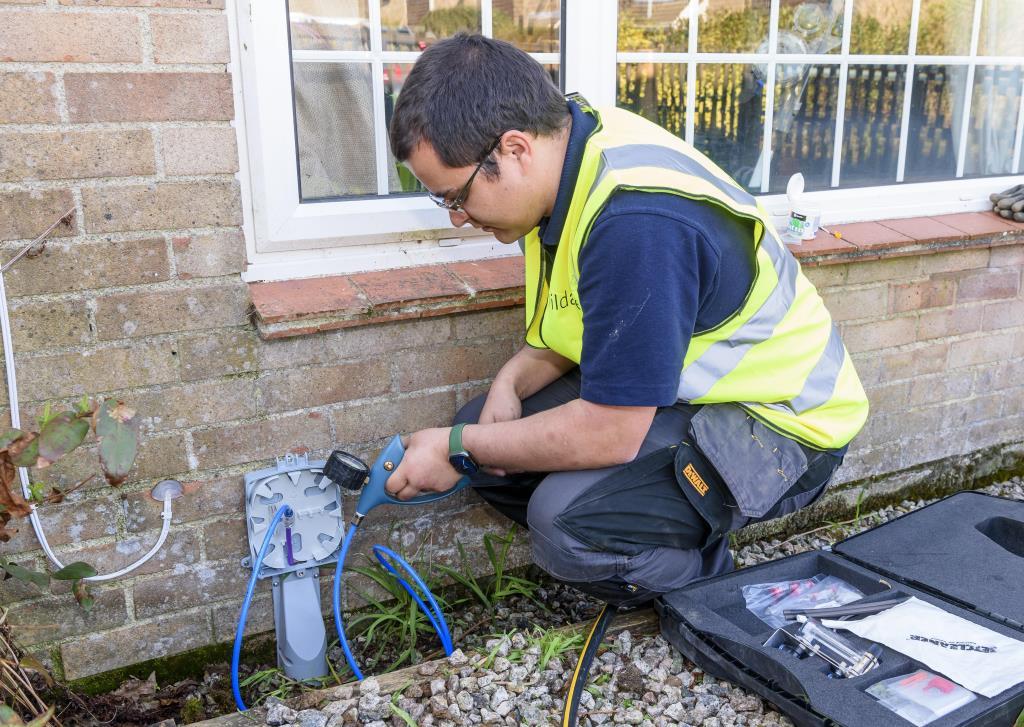Rolling out gigabit broadband across Cornwall would pump £615 million into the economy and secure an additional £111 million per year until 2030, according to a new independent study commissioned by local broadband provider Wildanet.

The report, Connecting Cornwall – Demonstrating the Value of Improved Connectivity, plots progress on the gigabit roll out and for the first time quantifies the impact of extending national gigabit capable broadband across hard-to-reach areas in Cornwall.
Key findings include:
- While Cornwall enjoyed early success through the Superfast Broadband Programme it has now fallen behind, with just 46% of the county having gigabit capable coverage – compared to a UK average of 66%. (Gigabit internet delivers download speeds equivalent to 1,000Mbps)
- 62,000 people in the county have never used the internet
- Digital connectivity would generate an economic impact amounting to £615 million GVA, with £111 million safeguarded year on year until 2030 for Cornwall’s economy
- Gigabit capable broadband would also deliver savings of more than £220 per year to individual households at a time when home budgets are being hit by the escalating cost of living crisis
- The case for gigabit capable broadband is compelling and has been accelerated by the consequences of the Covid pandemic, with home working, video communications, remote services and direct retail operations creating an unprecedented demand
The new report was commissioned by Wildanet, the Cornwall-based Alternative Network provider (Altnet), and conducted by the policy institute, Curia, in partnership with NGD Advisory Services. The result is independent research designed to better understand the impact of the digital divide on rural communities.
Alongside the economic impacts, the report states that gigabit broadband could also save £101 million of equivalent carbon taxation between 2020-2030. Equivalent carbon taxation refers to the amount an individual or business may have paid in carbon tax, avoided as a result of gigabit broadband. The report cites the example of flexible working and reduced commuting, delivering a significant positive impact on sustainability and the environment, as well as on finances.
The report states investment in gigabit infrastructure could also have a positive impact on household finances and social wellbeing, citing the figure of £16.5 million per year for citizens in Cornwall as a result of digital inclusion, and savings of £222.25 per household per year. This comes at a time where the cost of living crisis is leaving many household budgets increasingly squeezed.
This figure is consistent with other research from the Good Things Foundation which suggests for every £1 spent on digital inclusion, the average return is £15, including social, wellbeing and economic impact.
Broadband coverage in the south west has historically lagged behind national rollout schemes. With gigabit coverage currently at 46%, it is accepted that the nature of Cornwall’s geography will mean extending coverage will require further public investment.
In 2020, the Government committed £5 billion to Project Gigabit, which uses public procurement alongside the gigabit voucher scheme to roll out broadband to hard-to-reach areas across the UK.
The Levelling Up White Paper reaffirms the Government’s target of nationwide coverage by 2030 and the Government has committed to further forthcoming policy reforms to deliver connectivity to very-hard-to-reach areas.
Altnets, such as Wildanet, have been expanding in the south west to fill the gap of coverage in areas outside commercial builds. This is a critical element to ensuring the more hard to reach areas are covered by specialists such as Wildanet and to ensure customers have some level of choice.
Liskeard-based Wildanet is investing £50 million rolling out fibre broadband to communities across Cornwall with work already completed in Liskeard and Dobwalls, currently under way in Torpoint, Callington and Launceston and shortly starting in Wadebridge, Bude and Pensilva.
Wildanet CEO, Helen Wylde, commented: “I have witnessed first-hand the positive impact reliable local connections can have on individual residents, businesses, and the local economy. I am delighted that this research provides a clear quantitative analysis of this impact, which I hope will reenergise efforts to increase connectivity, and provide new industries with the confidence to invest in Cornwall and the south west.”
Helen Wylde is the subject of the CEO Interview, in the May issue of Business Cornwall magazine.









